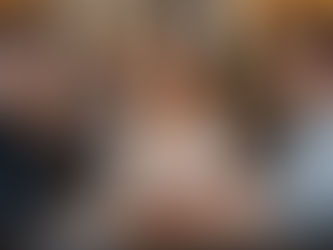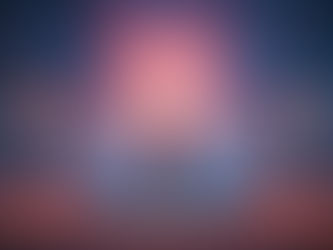Life is too short to drink wine from the wrong glasses. Know why wine glassware are wine specific?
- Kavisht

- Apr 6, 2021
- 4 min read
Updated: Jan 6, 2023

A glass of wine is the perfect aesthetic, isn’t it? But does wine glass matter?
You're probably curious as to why some people are so particular about their wine glasses. Why does wine glass matter? Would the world end if you want your wine served in a Solo cup? A Solo cup will suffice if the wine is inexpensive and you only want it for its "therapeutic" properties.
With its therapeutic properties, a glass of wine is perfect for any time of the day. It's virtually sure that you'll be drinking that wine out of a sort of bottle so closely correlated with wine that it's referred to as a "wine glass" regardless of when or where you're drinking it.
Do wine glasses make a difference? We’ll find out.
People would consider you a completely new brand of crazy to see you not drinking wine from a wine glass. Most experienced wine connoisseurs agree that wines should be paired with particular styles of wine glasses for maximum enjoyment. So yes, there are types of wine glasses for red wine too. This answer the question of 'does wine glass matter?'
Also read about: History of Gin: Know the Insane History of Gin From its Medical Beginnings to Smooth Spirit
First, wine surpasses the invention of glass by at least a few thousand years, if not much longer, with the first archaeological evidence of wine production dating at around 9,000 years ago. Bamboo, gourds, shells, animal hides and horns, and other natural materials are believed to have been used by the first wine drinkers.
If someone asked, 'does wine glass matter?' Nine thousand years ago, they would have been met with puzzled looks.
Moving on to the oldest recorded parallels to wine glasses, mixed opaque glass containers were used in religious rituals and beyond, such as the Roman patella cup, so-called because of its similarity to the human kneecap in modern times.
Glass cups became increasingly common among those who could afford them as technology advanced, especially relatively transparent glass around 800 BC and then mould-blowing around 50 AD in Rome.
Jumping ahead to the 15th century, the presence of Cristallo glass generated more interest. Only the high-class wealthiest families could afford it. Beyond its rarity, Cristallo glass's importance was primarily determined by high-definition transparency and its light refractive qualities, which were particularly enhanced when viewed through the burning flames of candles and oil lamps.
Skipping straight to the mid-nineteenth century, the size of a traditional wine glass had gradually grown larger and larger, whereas the glass itself had become thinner and thinner.
During the majority of the evolution of the wine glass till the present, the enhancement of the wine's flavour was never a factor in the design elements.
It was all about the aesthetic. This began to shift in the twentieth century. As the century progressed, the wine glass's notion was crucial to the wine's perceived flavour began to gain traction.
Read more: History of Scotch: Take Time Travel to the Remarkable Journey of your Favourite Malt Whisky!
How do wine glasses affect wine?
To quickly answer the most popular question of ‘does wine glass matter’, we need to understand how do wine glasses affect wine after all. The aroma of the wine is what matters foremost. About 80% of what we taste occurs from our noses rather than our tongues. When we eat or drink, our brains perceive the aromas as taste.
When you eat something, try keeping your nose closed, and you'll note that you miss out on a lot of the subtleties of flavour. If you eat something sugary, you'll always get a sweet taste, but you'll miss out on unique flavours.
You won't be able to fully appreciate the wine you're drinking if you can't smell it. Small glasses do not allow the wine to be properly stirred. Stirring space allows more oxygen into the wine, which would have helped bring out more aroma.
Why does wine glass matter?
Collection of aroma-
Interestingly, more coffee and teacups don't have "aroma collectors" because they might benefit from the same effect that a wine glass bowl has on wine. Depending on the wine type, you may want a large or small aroma collector.
Release of Aroma-
It's all about the scents when it comes to wine. It's the same enjoyment as smelling bacon being fried or a steaming cup of Chai tea. As the alcohol evaporates from the wine's surface, the aromas are released. Having a larger surface area allows for better scent release when drinking. Swirling wine raises surface area, according to reports.
There are no hard and fast rules for this reasoning, but we know that white wines have more minor aroma collectors and bowl to keep their temperature constant, while red wines have more giant bowls to show their aroma.
Thin lips-
While there are different viewpoints on the rim of a bottle, the general consensus is that the thinner the lip, the less it interferes with the drinking experience. This has been observed in a variety of bottles, ranging from water to whiskey.
Are you still questioning why does a wine glass matter?
According to Louise Gellert, “If you don’t think the glass matters, then I suggest you are trying out a glass tasting. Serve one glass of wine during a water glass and another during a wine glass. I assure you – there'll be a difference. The scent changes radically, and therefore the experience of drinking a glass of wine is going to be completely different and new.”
SIGN UP to get such articles directly into your inbox.




























